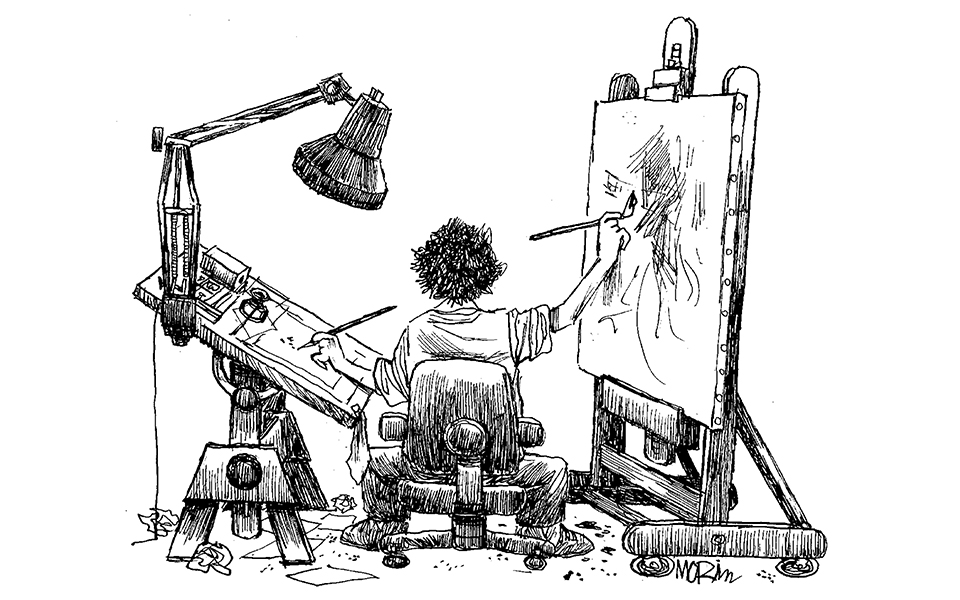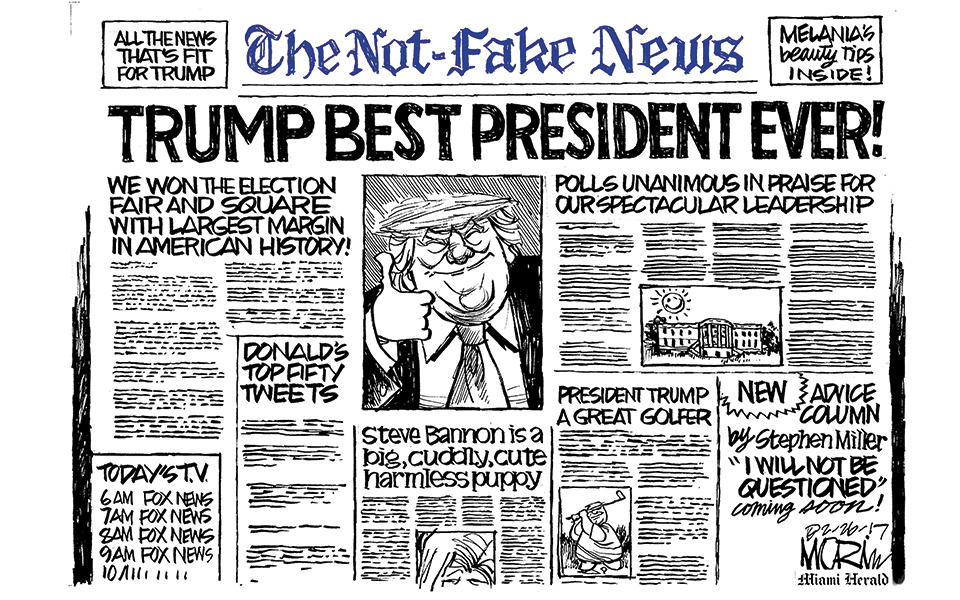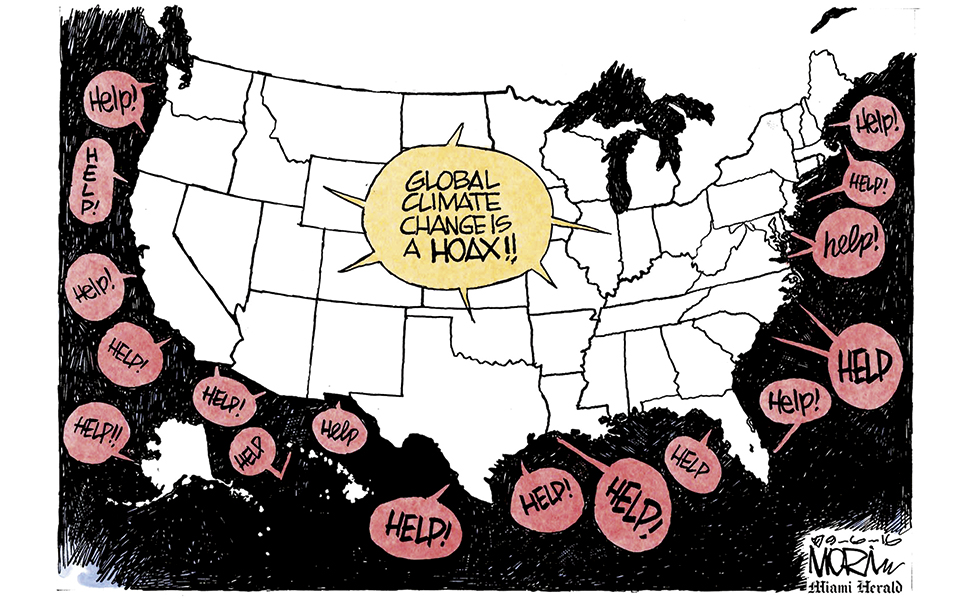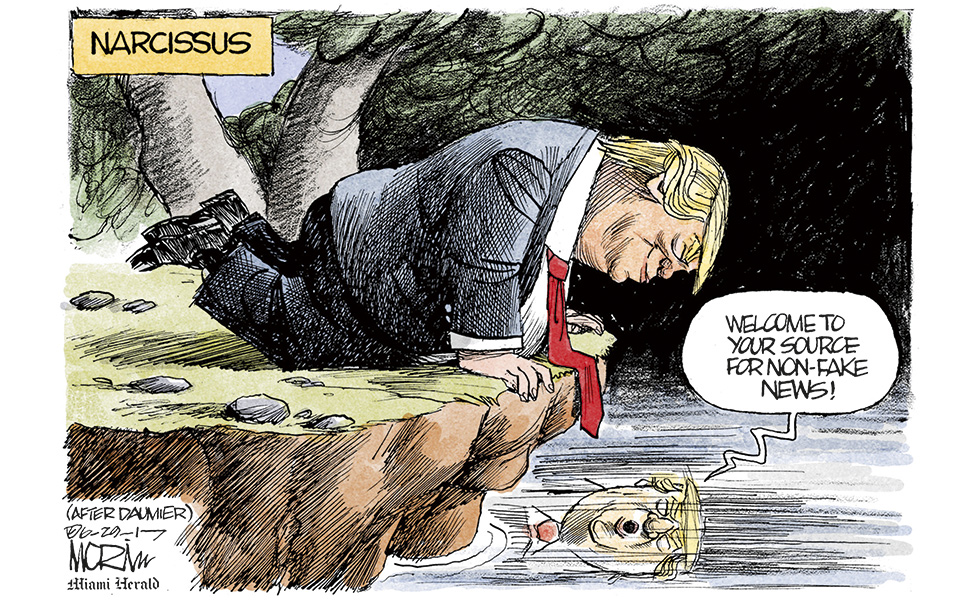You might know Miami Herald’s editorial cartoonist Jim Morin as one of those die-hard satirists whose humor has spared no important political figure, from Richard M. Nixon to Donald J. Trump.
An avid cartoonist from the age of seven, he was inspired to begin his journey by Saturday morning television. He cut his teeth on the Watergate Scandal, publishing his first political cartoon while still in college. Among other achievements, Morin boasts two Pulitzer Prizes, the most recent one having been awarded to him just this year for his satire on the 2016 presidential campaign and other important issues of the year, such as racial tensions, gun violence, and of course “fake news.”
A prolific artist, Mr. Morin draws some 250 cartoons every year. As he himself says: “The only thing I’m after is to find out something that’s wrong, some injustice and put it out there, stir up the pot and inspire debate.”

What makes a good political cartoon?
A good cartoon takes a stand on an issue and evokes a reaction from the reader, hopefully encouraging debate.
Does satire thrive in times of turmoil?
Satire thrives in times of turmoil because people are more knowledgeable about the issues and therefore understand the cartoons. In quieter times though, when we focus attention on an issue that isn’t being talked about, that’s when our work is more important because then we can help change the status quo.
Do you consider yourself and your peers to be of service to democracy?
When democracy is threatened, then yes, I think we do serve a higher cause. Ordinarily, though, I don’t think about this. I concentrate on stating my case concisely and hope to at least sow a seed of doubt in those who disagree with the point I’m making.
Can a political cartoon go “too far?”
The danger is that the term “goes too far” has a different meaning to different people. If you put limits on commentary, you get dangerously close to a slippery slope.
“You can disagree with something I do, or you can agree with something I do. If it inspires you to start talking about it or to start caring about it, then I’ve done my job.”

Is laughter stronger than hatred?
Yes, absolutely. Hating your enemy is not nearly as useful as ridiculing them and making others laugh at them with you. Dictators go after cartoonists and satirists because they fear them most for that reason. Laughter is contagious. And dangerous.
Is ignorance unbeatable?
No. A good education can beat ignorance. Civics is not taught in our public schools anymore. American History is not a required course as it should be. As a result, there is little understanding of how our constitutional democracy works. That is part of the reason why we are in the state we are in.
Can the pen change a voter’s mind?
Yes, if the reader’s mind is open. I’ve met members of my audience who have assured me my cartoons have caused them to re-think an issue.
Is it hard to keep up with Donald Trump? Does it feel like reality has become more surreal and hilarious than even the wildest satire?
No. I don’t make fun of politicians. I criticize them for what they say and do. Trump is a great subject because he is a great hypocrite. Hypocrisy is the bread and butter of satirists.

Some claim that the fact that Mr. Trump has been under constant fire from the so-called media establishment has actually helped him win. Do you see any truth in that?
No, not at all. Some voted for him due to dissatisfaction with the status quo in Washington. Some were attracted to the TV personality they saw on The Apprentice. Some believe in his platform. Some are attracted to his racism and bigotry. His voters are actually a diverse collection of people.
Do you feel that a large part of the American public won’t “get the joke” no matter what?
That’s a possibility since we’ve become a compartmentalized society. We do have our detractors, though, who communicate their disagreement in letters, posts and tweets.
Which US president was the most difficult to make fun of? And which one do you miss the most?
I don’t make fun of presidents. I criticize them if they don’t serve the people of our country properly. As for favorites, Trump is the most massively incompetent and seriously dangerous threat to our country and our world in our lifetime, by far. All past presidents have been a joy and challenge to draw but I do not miss any of them!












